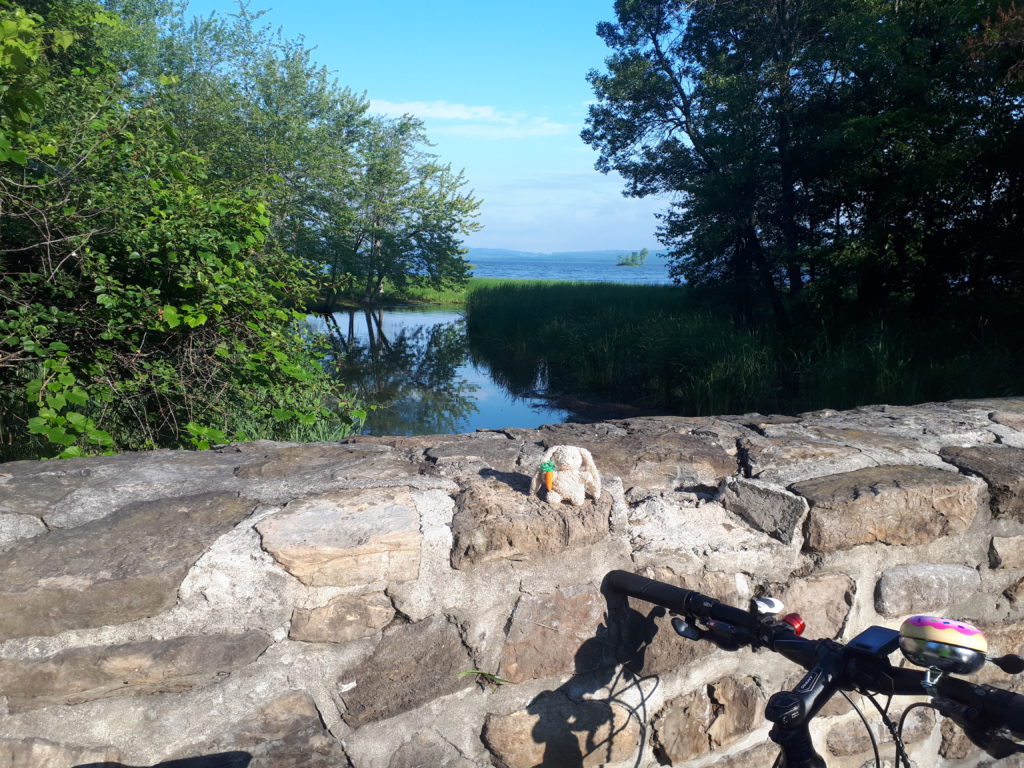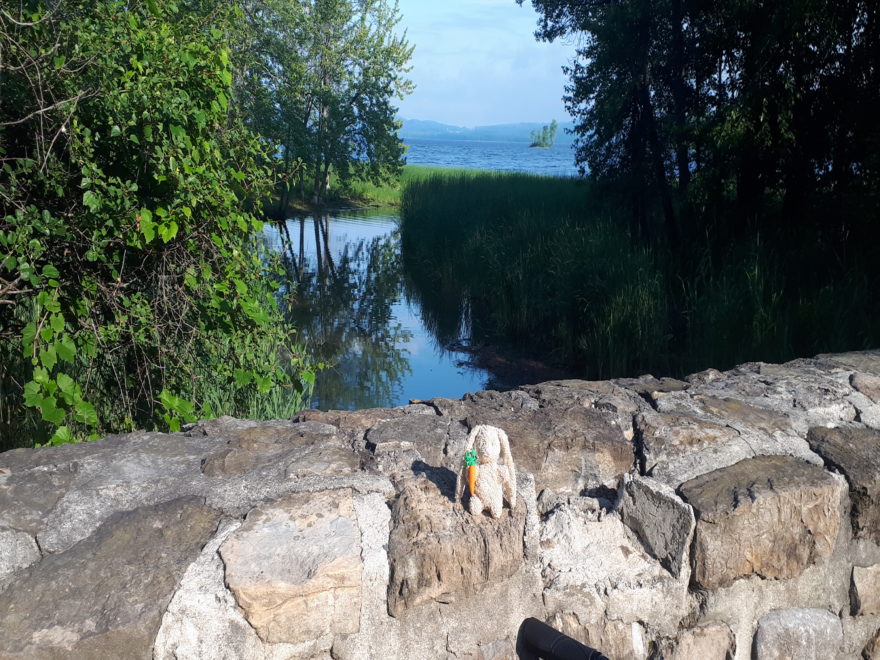I’ve always considered myself to be an outdoor sports enthusiast, long before I knew there was even a term for this. My grandparents had a built-by-hand summer cottage in the foothills of the Laurentian mountains – “les Laurentides” in French – just a few houses away from the beach.
The lake was at the bottom of a steep valley, fed by the same cold spring from which we’d get our drinking water. When my sister and I were babies (there are only 11 months between us!), dad taught us to swim – in that cold water! – pretty much as soon as we could crawl.
He’d served in the Royal Canadian Navy, and had “seen too many people drown” because they couldn’t swim. So he made certain that his kids would know what to do if we ever ended up in the water unexpectedly.
My dad believed in motivating us to do outdoor activities even as very young kids, but not necessarily with treats. His rewards for us were more often based on creating a sense of accomplishment, of rising to a challenge. He’d ask us to try something like; Do you think you can swim to that rock over there? Or paddle the canoe to that island by yourself, ride a bike to the next town, skate to the bend in the frozen river, dive off the high board, cross-country ski through a forest – you get the idea!
If we couldn’t meet whatever the particular challenge was, he’d be there to help. He’d just say: “We’ll try again when you’re a bit bigger”, or stronger, or older. Never “you can’t”, but instead “you’re not ready yet”.
And if we could complete the challenge he’d set out that day, it’d be “Hey, I really didn’t think you’d be able to do that. That’s fan-n-n-tastic. Let’s go tell everyone back at the cottage!”
One year, the challenge was for us to swim across the lake. I’d have been about 5 years old, and the lake was a mile or so wide. Swimming past the ropes of the public beach was prohibited under a municipal by-law, and the last time dad had swum across the lake, the local police had been waiting for him on the other side.
So he hadn’t come back to the beach. It’s a fairly long lake, and once dad had spotted the police car on the opposite shore, he kept swimming – mostly underwater – towards one of the narrow ends of the lake. He’d been a scuba diver in the Navy, and could swim fairly long distances underwater without surfacing.
He got out of the water by some trees on the shore at the municipal golf course, across the lake, where almost everyone in the town was a member. Someone lent him some clothes to put over his bathing suit, and a friend who’d just finished a game drove him back to the beach. To the little snack bar, at the top of the hill that leads down to the beach.
When he sauntered down the hill to the beach, wearing the borrowed shorts and t-shirt and eating fresh French fries from the snack bar, he found that the police had been waiting for him there as well. The officers confronted my dad and asked where he’d been since he’d gone into the water:
I just went for a little swim, and then went up to get something to eat ’cause I skipped lunch. I came back down to see what was going on when I saw the second police car pull in – figured something exciting must be going on down here.”
They never did manage to catch him for swimming ‘outside the ropes’ at the beach. So now our challenge, as kids, was to swim across the same lake! We had to wait until the beach closed for the day, at dusk, to avoid the police. It became a real adventure.
And sure enough, we swam across. Dad had a friend waiting in a car on the other side of the lake with towels, blankets, and dry clothes. He also had floppy hats and big sunglasses for us to wear as disguises – like characters in an old action movie – in case the police were watching for my dad to go swimming outside the ropes again.
My dad’s aim was never to teach us to break the law; it was to not let things get in the way of our goals. He’d checked with a Village employee, and been told that the municipal by-laws governing the beach were only in effect when the beach was open.
So if we swam past the limits after hours, it was at our own risk – but not against the by-law. Of course, he didn’t share that bit of information with us until years later! And apparently the Village amended its by-laws the following year, so we never did that swim again.
Over the years I’ve applied my dad’s approach to many challenges, including all of the outdoor sports that I adore. Some of my outdoor sports over the years have been challenging for me, particularly since I was diagnosed with exercise-induced asthma in my early teens.
Although I had to give up all of my favourite competitive sports – due to the asthma – by the time I was 13 (including diving, figure skating, swimming, synchronized swimming, and water polo), I was able to keep doing the outdoor sports.

The outdoor sports that I loved most as a child, and continue to love as an adult, include:
- Alpine, or high-mountain, hiking
- Biathlon (cross-country skiing and target shooting)
- Canoeing
- Cross-country skiing
- Cycling
- Rock climbing (since I took courses in college)
- Skating
- Snowshoeing in the mountains
- Swimming
- Wilderness camping
My new challenge isn’t one that I’ve chosen; it’s finding a way to continue to do at least some of the outdoor sports that I love, despite a nasty neuro-inflammatory disease called CRPS. I’ve already managed to get back on my bike, which helped me feel like myself again!
More on this to come, in future posts – Wish me luck!
As always, thanks for reading and feel free to post a comment; I love hearing from you ‘-)

